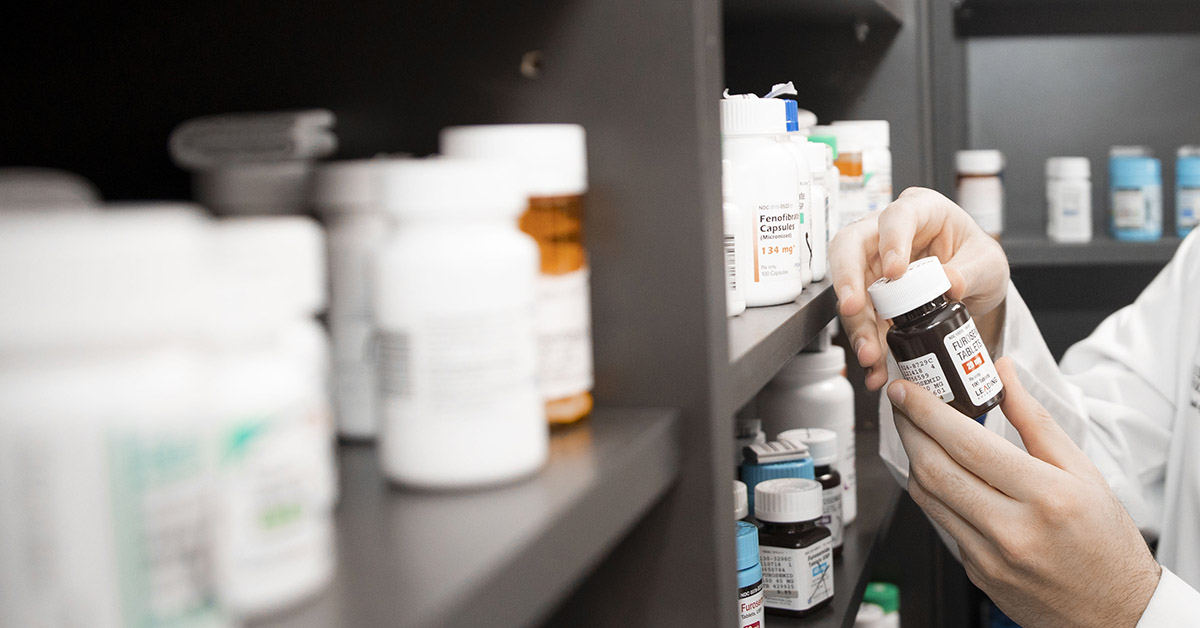What’s In Your Medicine Cabinet?
TTUHSC School of Pharmacy to host Medication Cleanout™

Is your medicine cabinet filled with prescriptions or medications you no longer use? When old medications are left to collect dust, they become potential sources of poisoning to young children or may be accessed by teens experimenting with drugs. They also are a hazard to adults and elderly as they increase the risk of choosing the wrong bottle or taking medications that are no longer required.
The Texas Tech University Health Sciences Center (TTUHSC) School of Pharmacy’s Texas Panhandle Poison Center along with the Lubbock County VOICES Coalition and the Texas Tech University Police Department will host a Medication Cleanout™ from 10 a.m. to 2 p.m. April 27 at the Texas Tech Physicians Medical Pavilion, 3601 Fourth St.
Jeanie Jaramillo-Stametz, Pharm.D., director of the Texas Panhandle Poison Center, encourages Lubbock and surrounding area residents to clean out their medicine cabinets and bring in any unused, expired or unnecessary medications or sharps for proper disposal. The program also provides disposal services for those who use syringes or sharps. For instance, those who take allergy shots or insulin injections can bring their sharps for appropriate disposal as well.
“Flushing or throwing old medications into the trash may contaminate the environment, pollute our drinking and ground water and harm aquatic creatures,” Jaramillo-Stametz said. “Also, the abuse of prescription medications continues to be an epidemic in the U.S. Medication Cleanout™ is a proactive approach to safeguard our communities by providing a free and convenient way for people to dispose of these medications in a legal, environmentally sound and convenient manner.”
To date, more than 50,000 pounds of unneeded medicine and sharps have been disposed of properly through the TTUHSC Medication Cleanout™ program. A drive-thru, drop-off format will allow residents to dispose of their medications with the added convenience of not leaving their cars. Yard signs will be posted along Fourth Street to help drivers locate the drive-thru path. Medications should be in their original containers. Because of environmental restrictions, only medications from households can be accepted. Loads of medications from clinics, pharmacies and other businesses are not allowed.
For more information about the Medication Cleanout™, call (806) 414-9495 or visit www.MedicationCleanout.com.
Related Stories
Celebrating Veterans: TTUHSC’s General Martin Clay’s Legacy of Service and Leadership
From his initial enlistment in the Army National Guard 36 years ago to his leadership in military and civilian health care management roles, Major General Martin Clay’s career has been shaped by adaptability, mission focus and service to others.
Texas Tech University Health Sciences Center School of Nursing Named Best Accelerated Bachelor of Science in Nursing Program in Texas
The TTUHSC School of Nursing Accelerated Bachelor of Science in Nursing (BSN) program has been ranked the No. 1 accelerated nursing program in Texas by RegisteredNursing.org.
TTUHSC Names New Regional Dean for the School of Nursing
Louise Rice, DNP, RN, has been named regional dean of the TTUHSC School of Nursing on the Amarillo campus.
Recent Stories
The John Wayne Cancer Foundation Surgical Oncology Fellowship Program at Texas Tech University Health Sciences Center Announced
TTUHSC is collaborating with the John Wayne Cancer Foundation and has established the Big Cure Endowment, which supports the university’s efforts to reduce cancer incidence and increase survivability of people in rural and underserved areas.
TTUHSC Receives $1 Million Gift from Amarillo National Bank to Expand and Enhance Pediatric Care in the Panhandle
TTUHSC School of Medicine leaders accepted a $1 million philanthropic gift from Amarillo National Bank on Tuesday (Feb. 10), marking a transformational investment in pediatric care for the Texas Panhandle.
Texas Tech University Health Sciences Center Permian Basin Announces Pediatric Residency Program Gift
TTUHSC Permian Basin, along with the Permian Strategic Partnership and the Scharbauer Foundation, Feb. 5 announced a gift that will fund a new pediatric residency.
